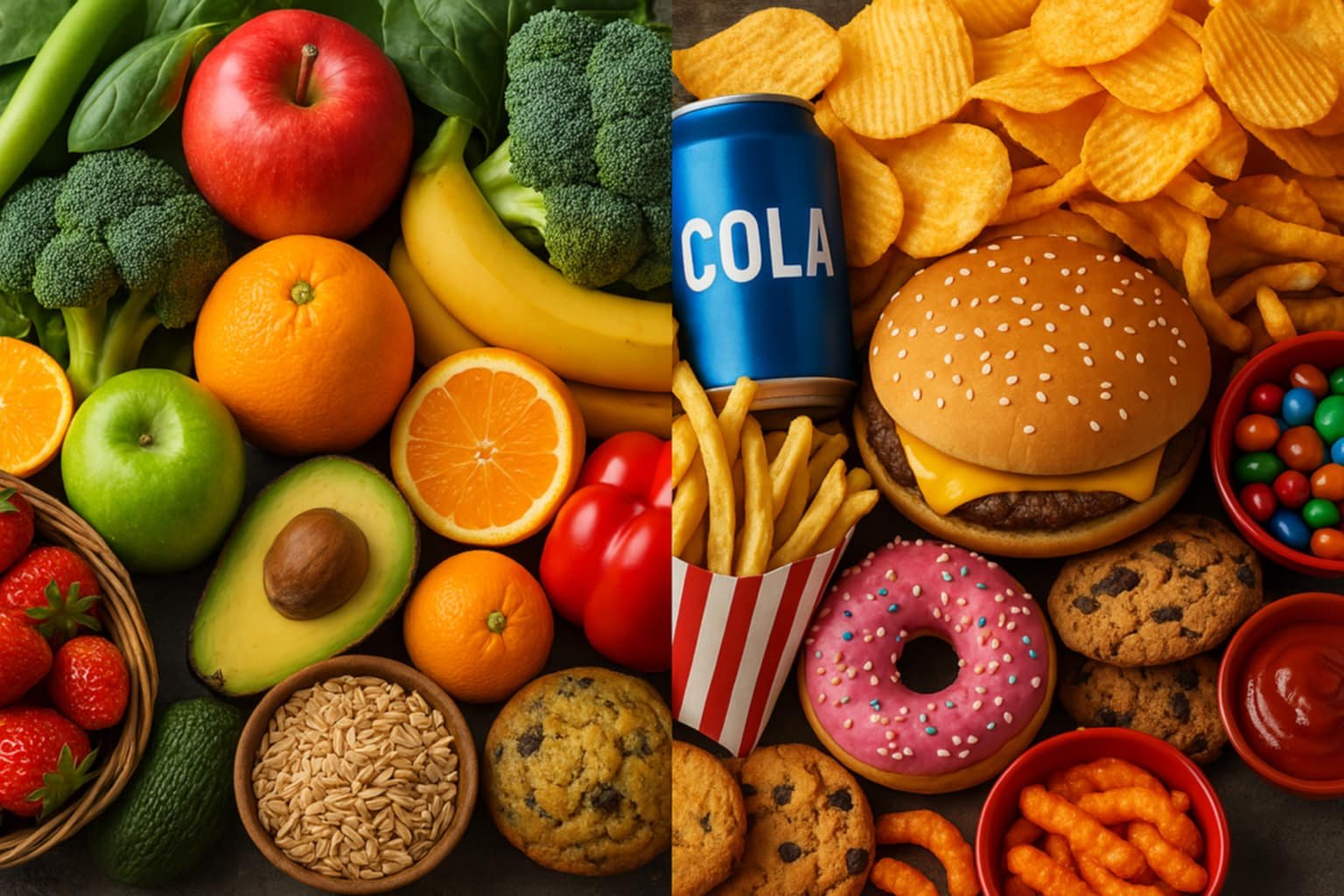The Danger of Ultra Processed Food (UPF)
How the average person eats:
Ultra-processed foods (UPFs) (~60%+): Packaged snacks, soft drinks, Frozen meals, instant noodles, processed meats, and sugary cereals.
Processed Foods (approximately 20-25%): This category includes canned goods, cheese, bread, and foods that contain added sugar, salt, or preservatives.
Unprocessed/minimally processed foods (~15-20%): Fresh fruits, vegetables, meats, dairy, nuts, and grains.
This heavy reliance on processed foods is linked to the rising rates of obesity, diabetes, and other health issues.
Ultra processed
Whole food
Our bodies need fresh, whole foods.
Health effects of Ultra Processed Foods:
Ultra processed foods (UPFs) are made of industrial formulations made primarily from refined ingredients, additives, preservatives, and artificial flavors. They are designed for convenience, long shelf life, and hyper-palatability. However, research has linked them to numerous health risks:
1. Increased Risk or Chronic Disease
Obesity – UPFS are often high in sugar, unhealthy fats, and refined carbs, leading to weight gain and metabolic disorders.
Type 2 Diabetes – High glycemic load and additives can impair insulin sensitivity.
Cardiovascular Disease – Excess sodium, trans fats and inflammatory ingredients contribute to hypertension and heart disease.
Cancer – Some studies suggest that frequent consumption of UPRs is associated with higher risk of colorectal, breast, and other cancer.
2. Gut Health Disruption
Artificial sweeteners, emulsifiers, and preservatives can negatively alter the gut microbiome, increasing inflammation and digestive issues.
3. Mental Health Issues
Diets high in UPFs have been linked to depression, anxiety, and cognitive decline due to the inflammation and lack of essential nutrients.
4. Nutrient Deficiencies
UPFs are often calorie-dense but nutrient-poor, leading to deficiencies in essential vitamins, minerals, and fiber.
5. Increased Inflammation Autoimmune Risks
Additives and preservatives may trigger chronic inflammation, which is linked to autoimmune diseases, arthritis, and neurodegenerative conditions.
6. Addictive Eating Behavior
Engineered for hyper-palatability, UPFs can hijack the brain’s reward system, making people crave more and overeat.
Eliminating or even reducing UPFs and prioritizing whole, nutrient-dense foods can significantly improve overall health.
What do the Experts say about Food?
“The key to health is understanding that food is not just calories - it is information, medicine, and healing.”
“Your gut microbiome is as unique as your fingerprint - and how you feed it could be the most important health decision you make each day.”
“The choices we make everyday, what we put on our plate, how we move our bodies, how we manage our stress - these are the determinants of long-term health.”
“It’s not about calories. It’s about the hormone insulin. And sugar drives insulin more than any other food.”
“Food is the biggest cause & the biggest cure for disease. Food isn’t just fuel - it’s medicine. It’s information. It tells your body what to do.”
“The body has the remarkable ability to heal itself - we just have to give it the right conditions to do so.
”






